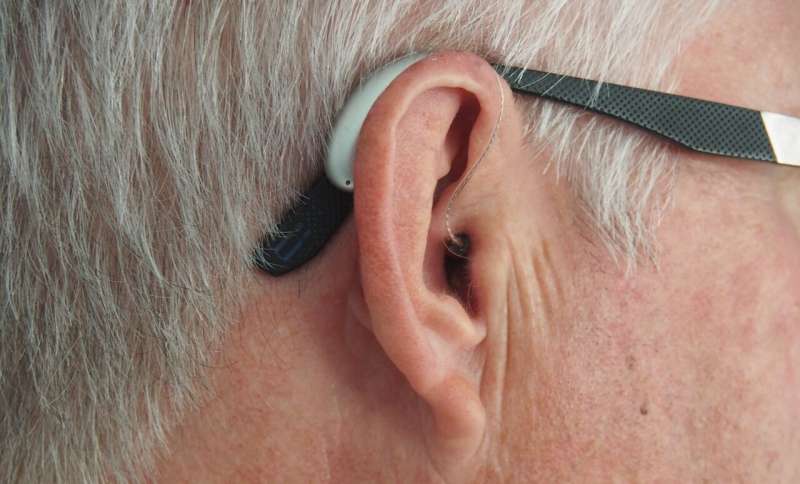Credit: Unsplash/CC0 Public Domain
People with combined vision and hearing loss are nearly four times more likely to experience depression and more than three times more likely to suffer chronic anxiety, according to a new study published in the journal Frontiers in Psychology and led by Anglia Ruskin University (ARU).
Researchers analyzed a health survey of 23,089 adults in Spain and found that while people suffering either vision or hearing loss both were more likely to report depression as those that were not, that risk increased to 3.85 times higher when respondents reported problems with both senses combined.
The study also found people with combined vision and hearing loss were 3.38 times more likely than the general population to report chronic anxiety.
It is understood to be the first study looking at the risk of depression in people with combined vision and hearing loss.
Lead author Professor Shahina Pardhan, Director of the Vision and Eye Research Institute at ARU, said:
"Difficulties with seeing and hearing affects many aspects of everyday life. It can affect ability to work, interaction with others and carry out physical activity, all of which are important for emotional wellbeing. Our study has found a significantly increased risk of mental health issues like depression and chronic anxiety if people suffer both vision and hearing loss."
Co-author Dr. Guillermo López-Sánchez added:
"These findings show the importance of appropriate treatment for sensory loss as well as timely intervention for mental health issues. The strong link to mental health that we have found shows these issues cannot be ignored by health authorities and action must be taken to ensure the best possible care for those with sensory loss."
More information: Shahina Pardhan et al. Combined Vision and Hearing Difficulties Results in Higher Levels of Depression and Chronic Anxiety: Data From a Large Sample of Spanish Adults, Frontiers in Psychology (2021). DOI: 10.3389/fpsyg.2020.627980
Journal information: Frontiers in Psychology
Provided by Anglia Ruskin University
























